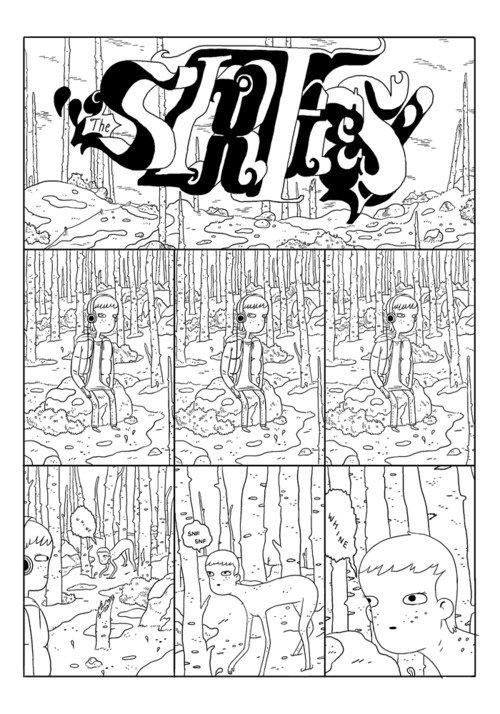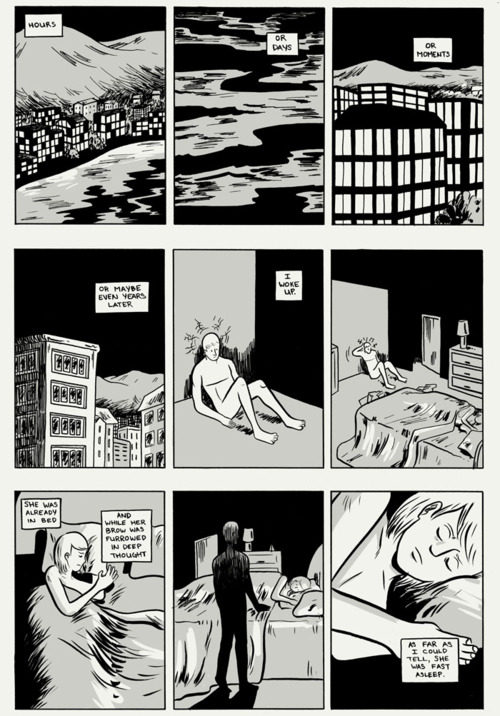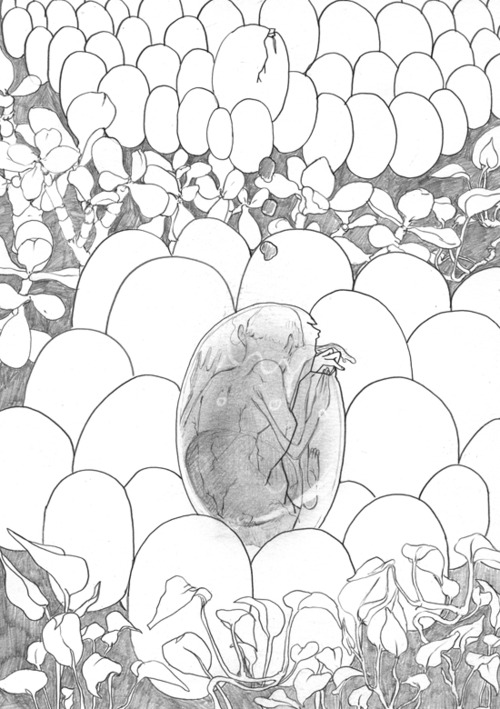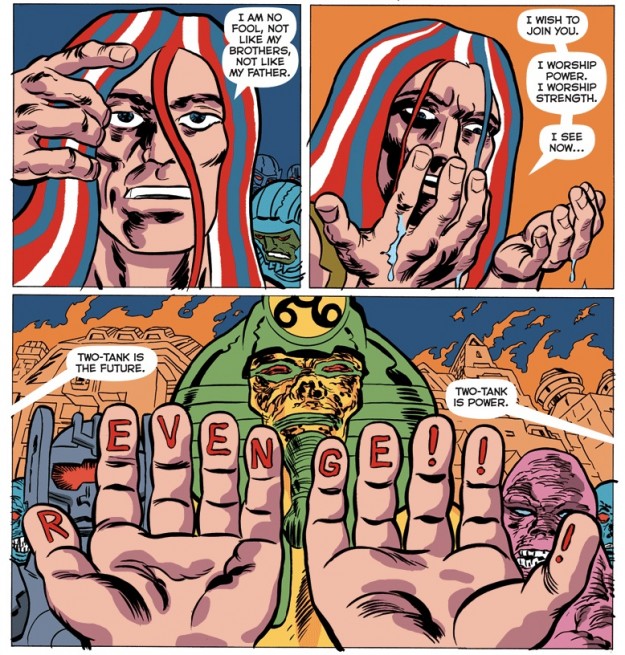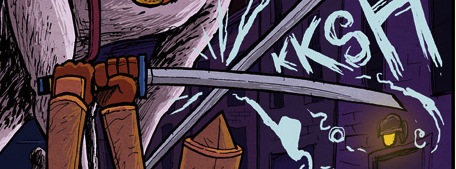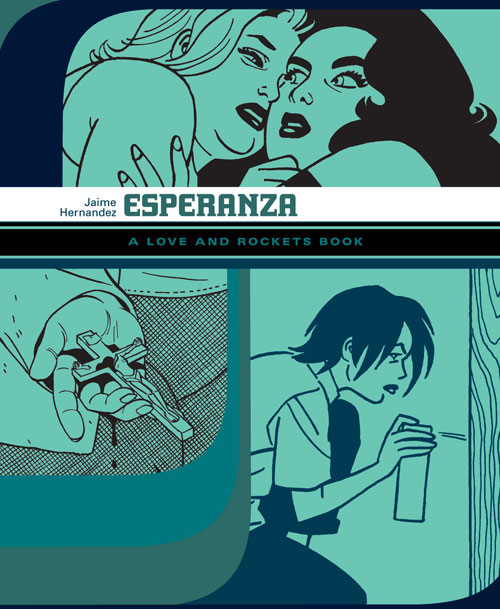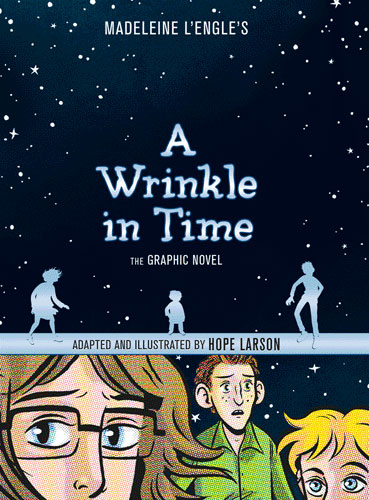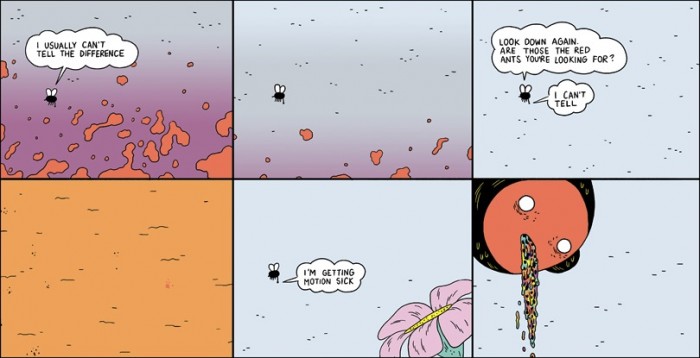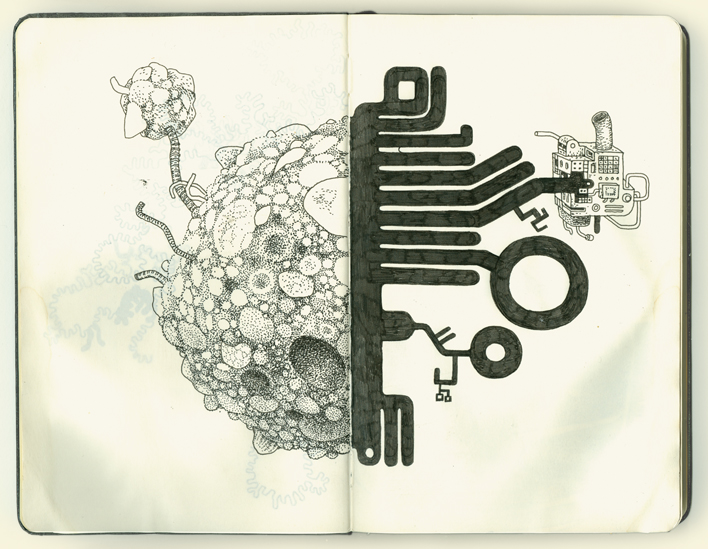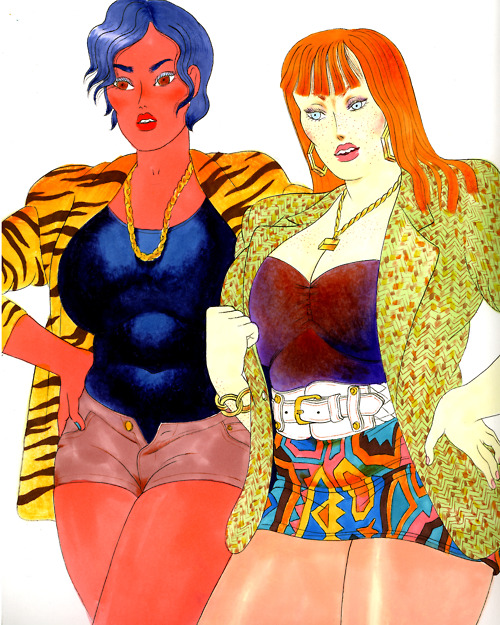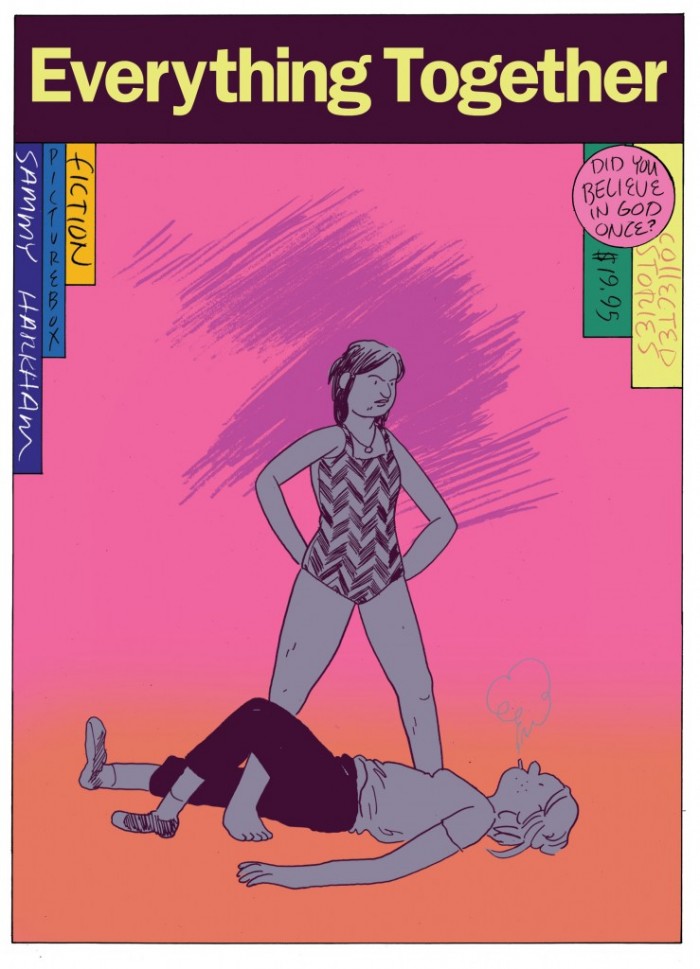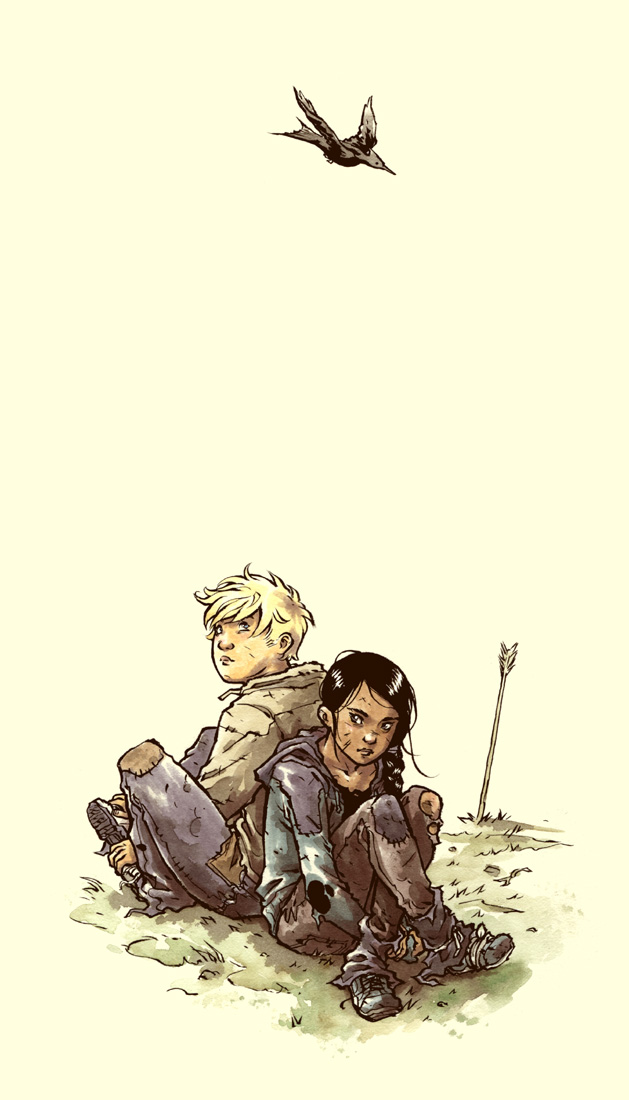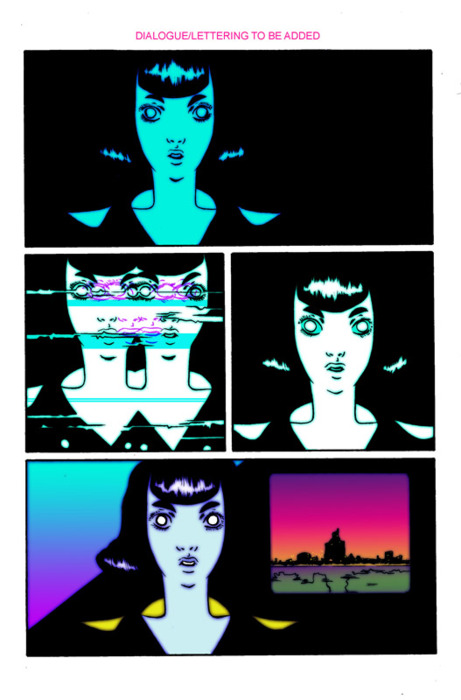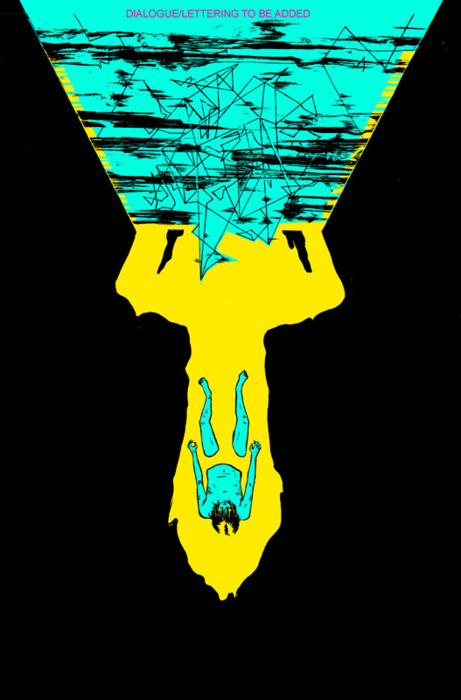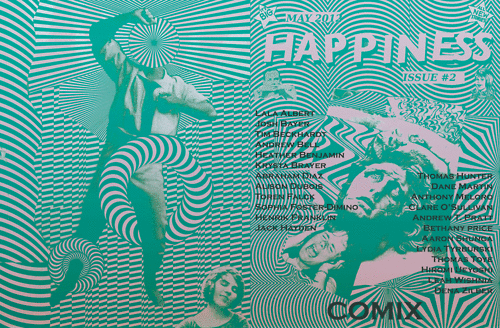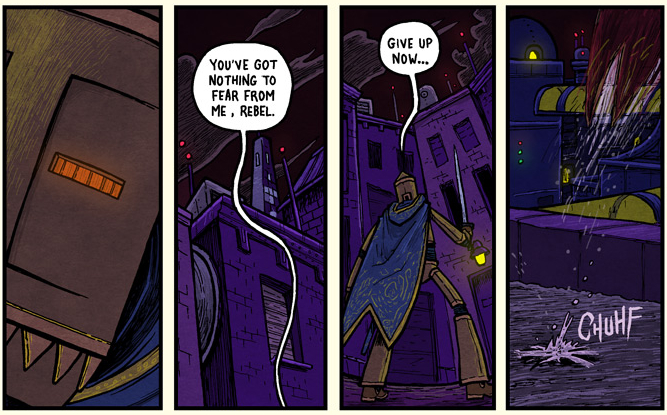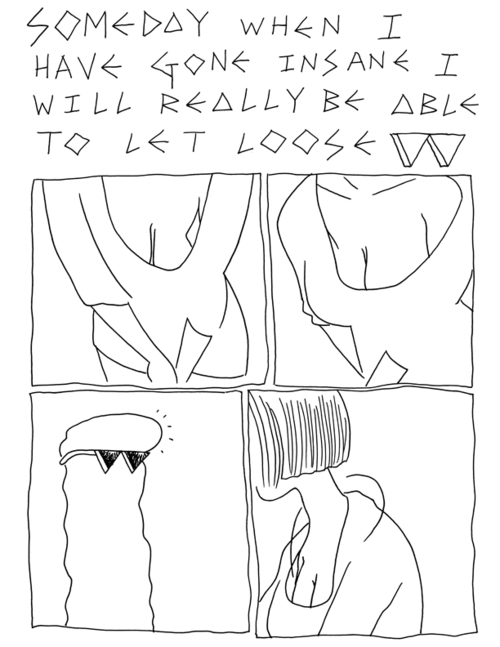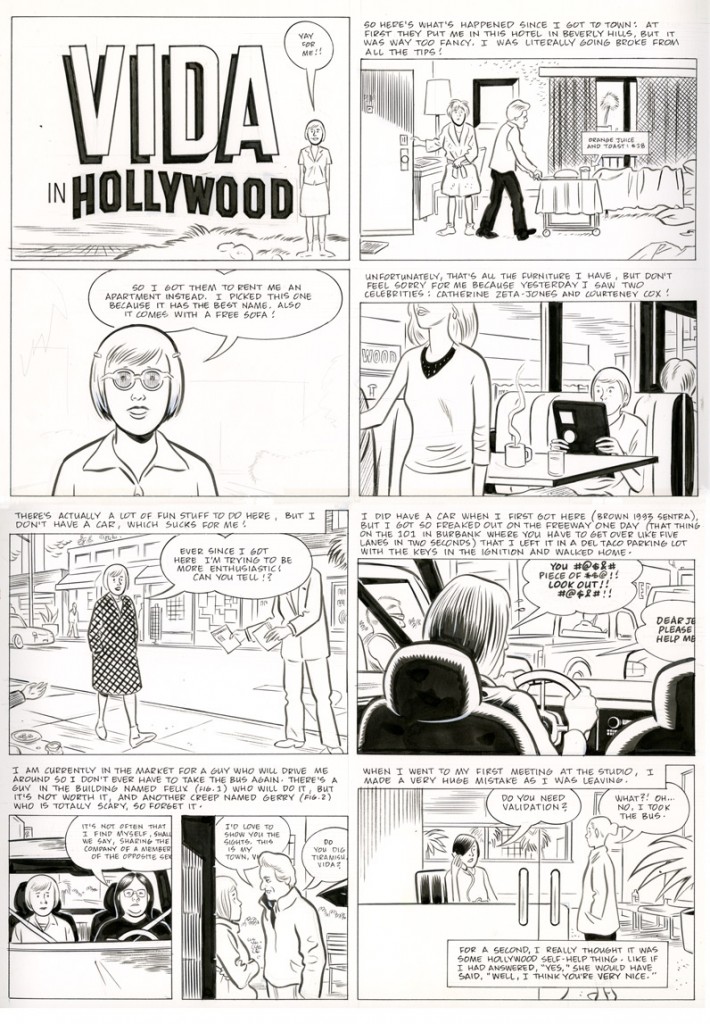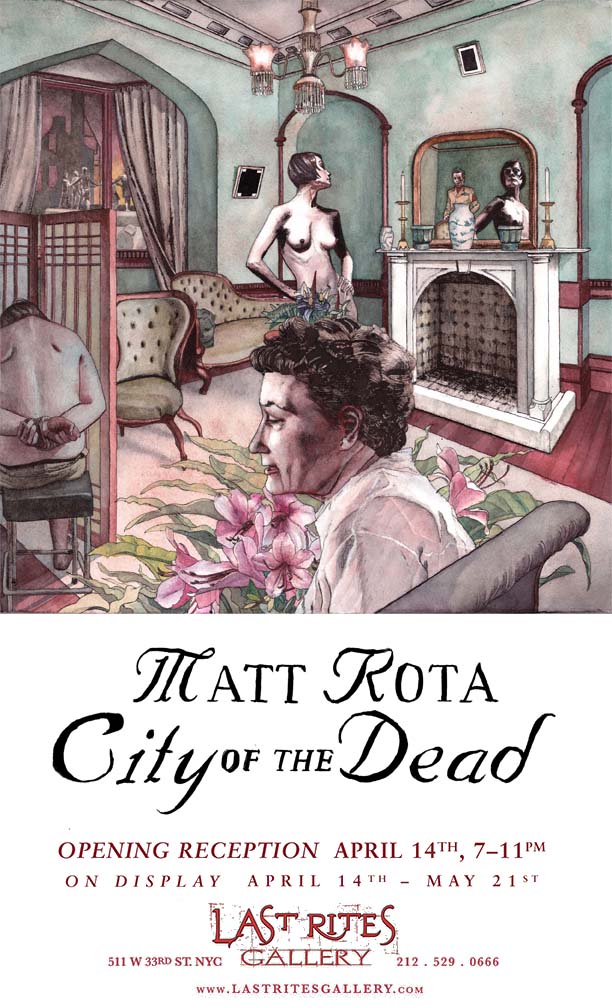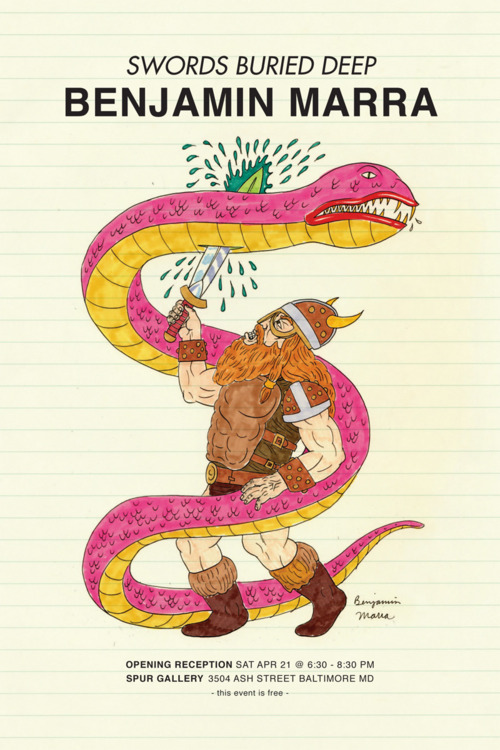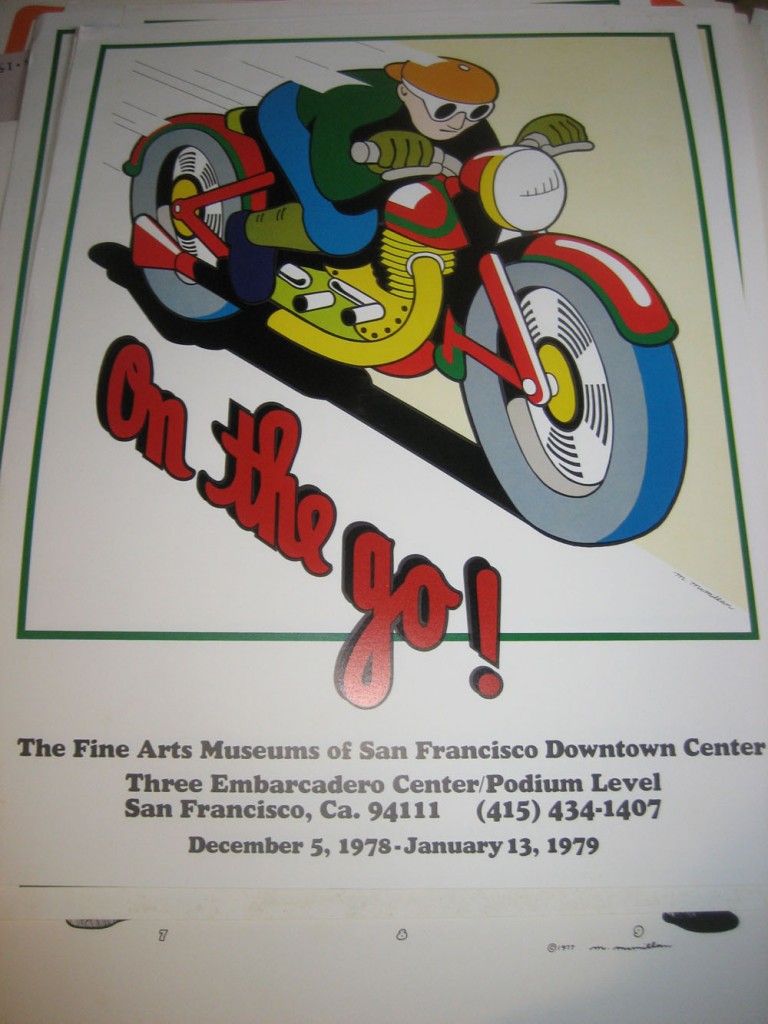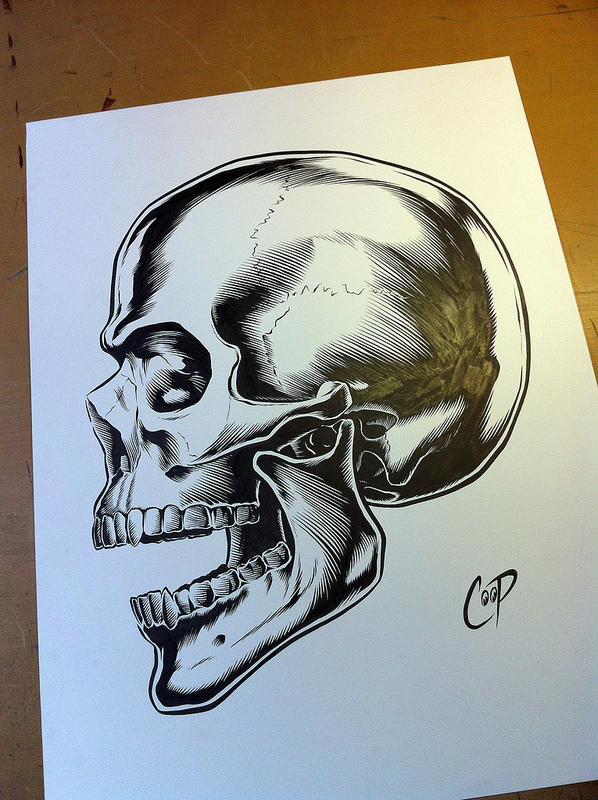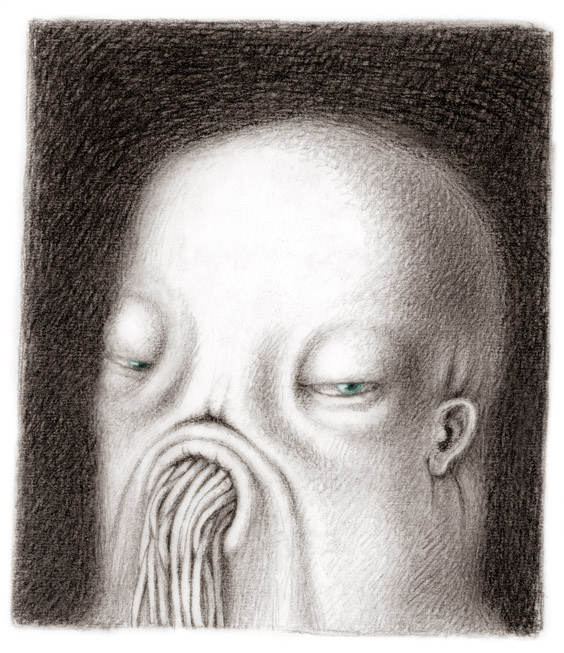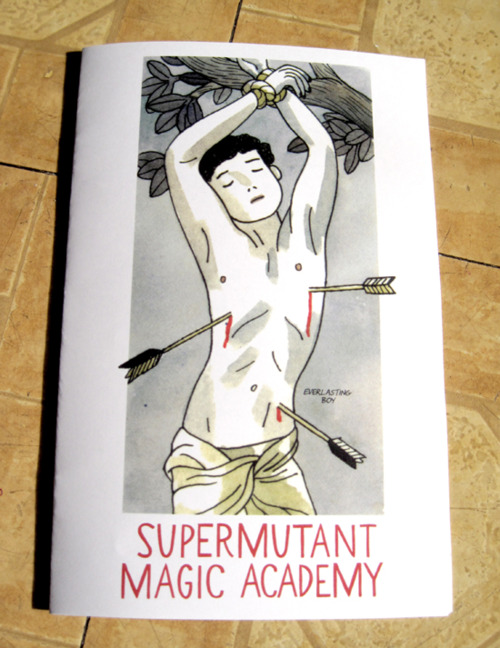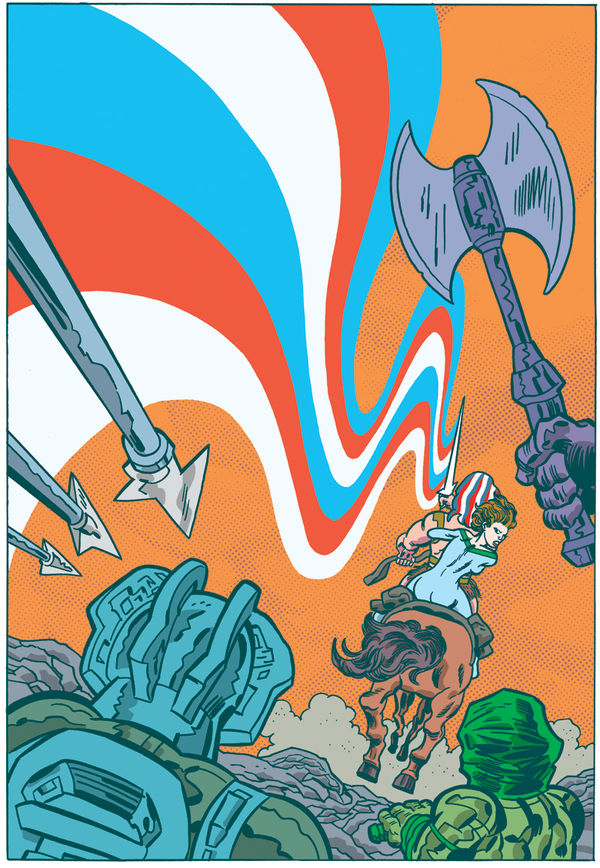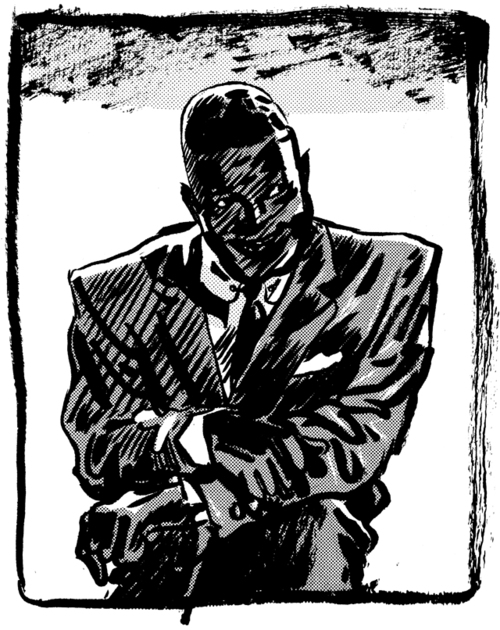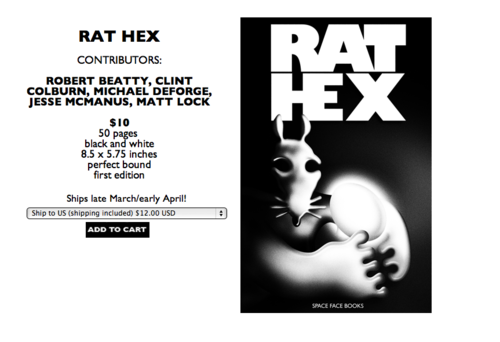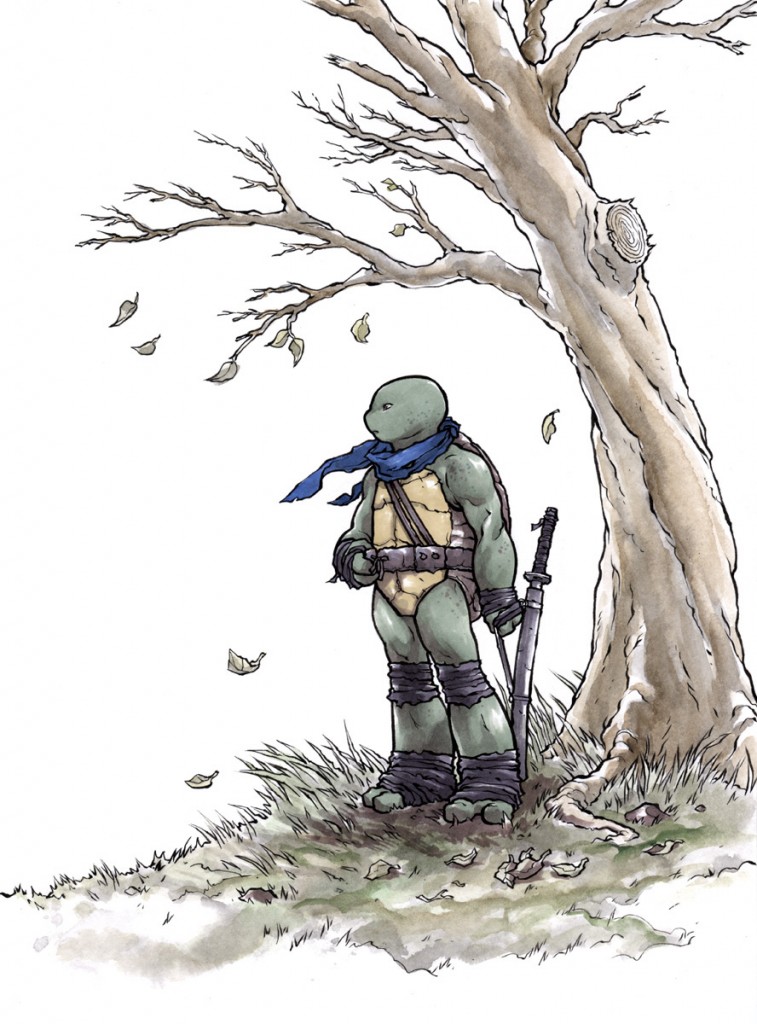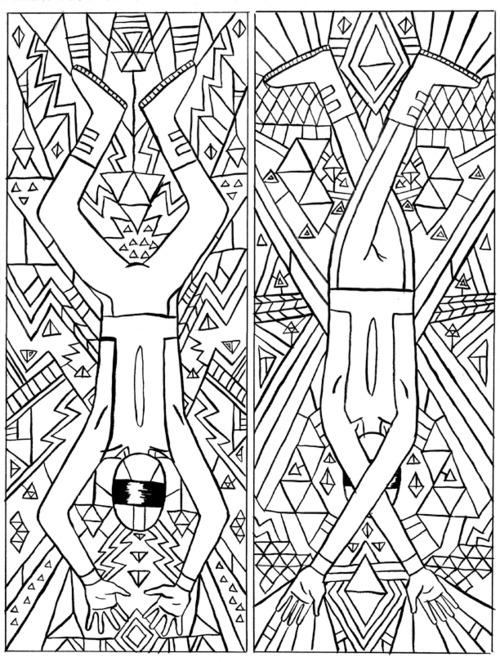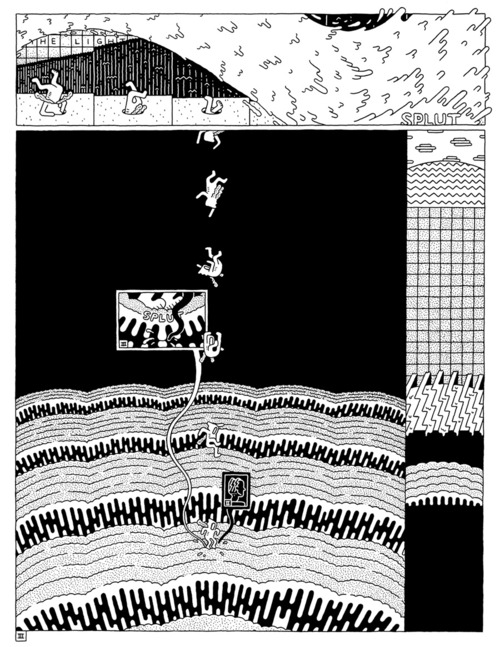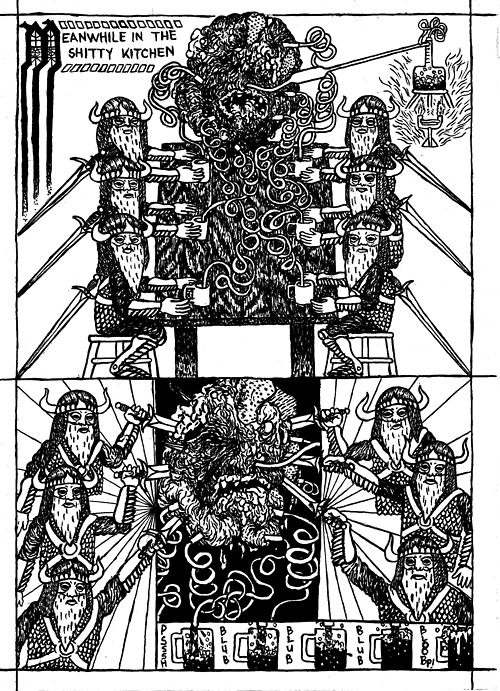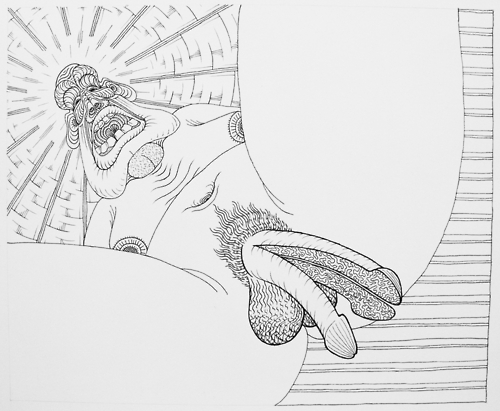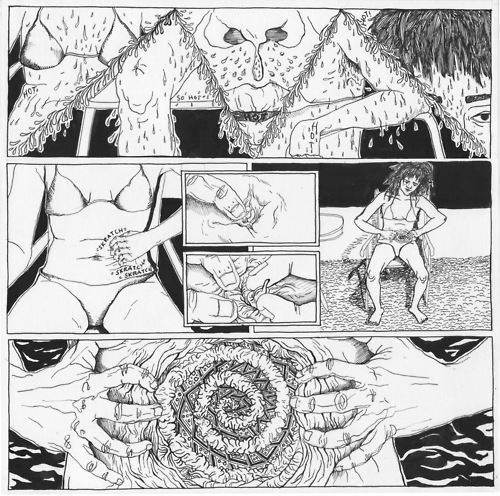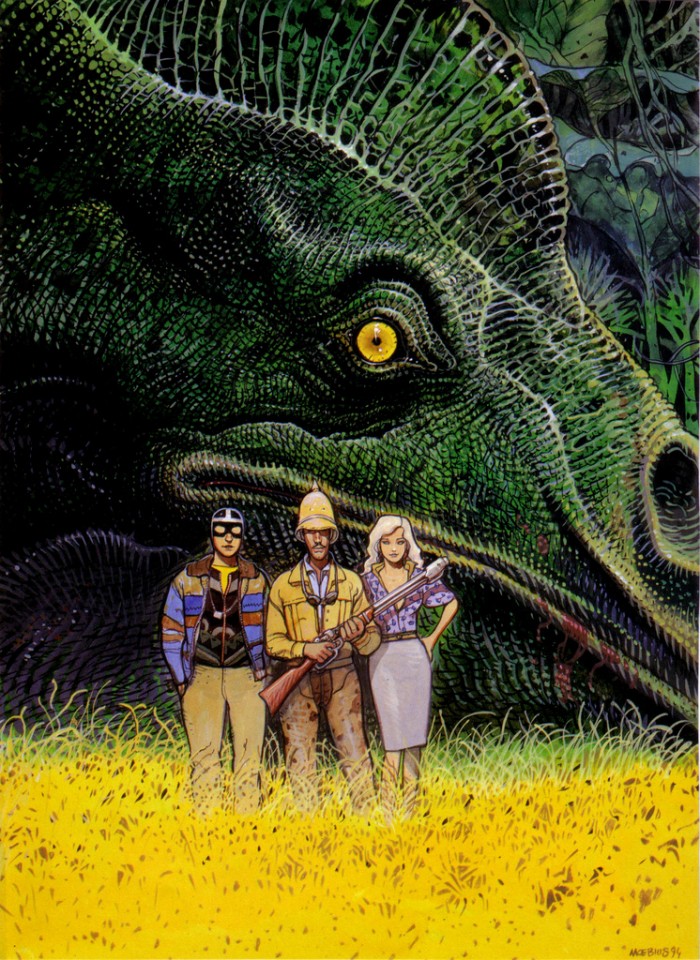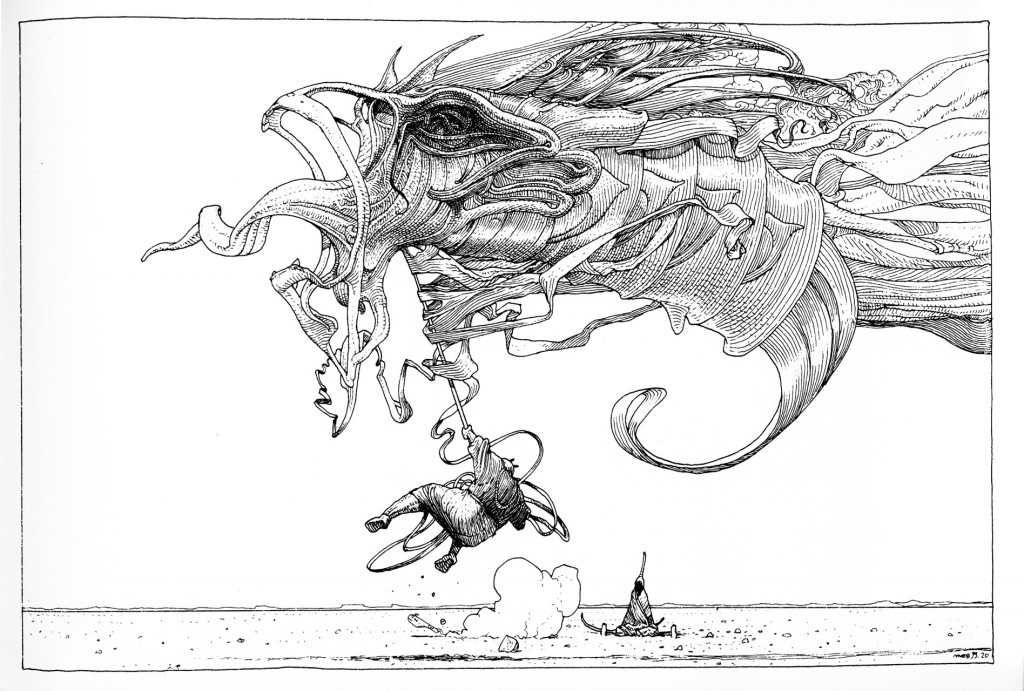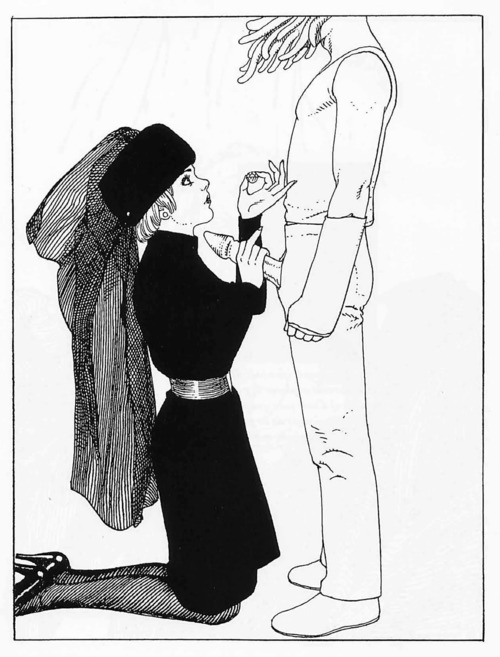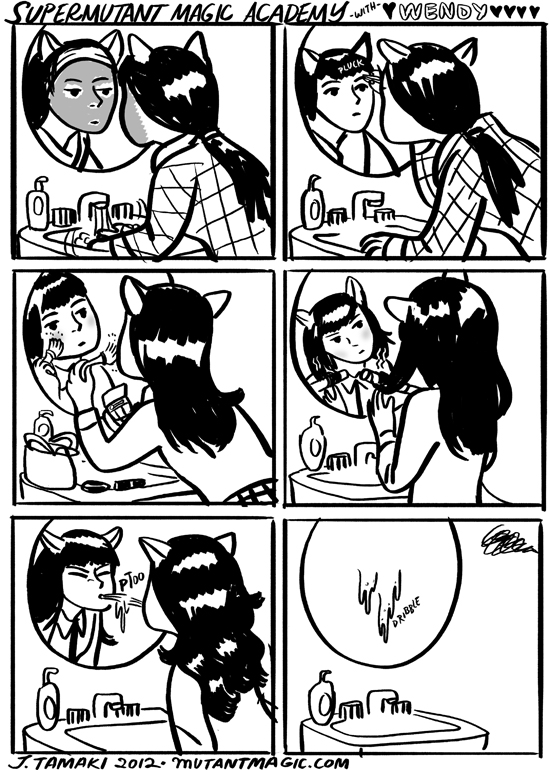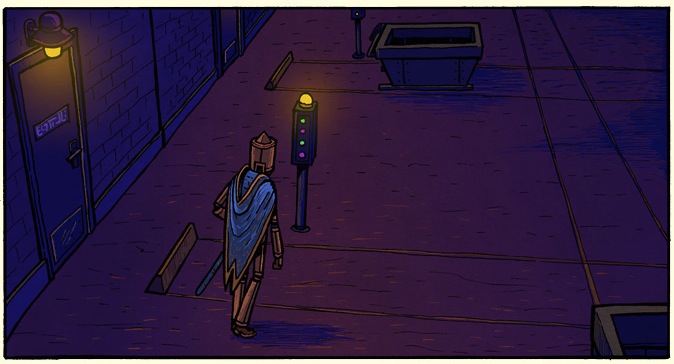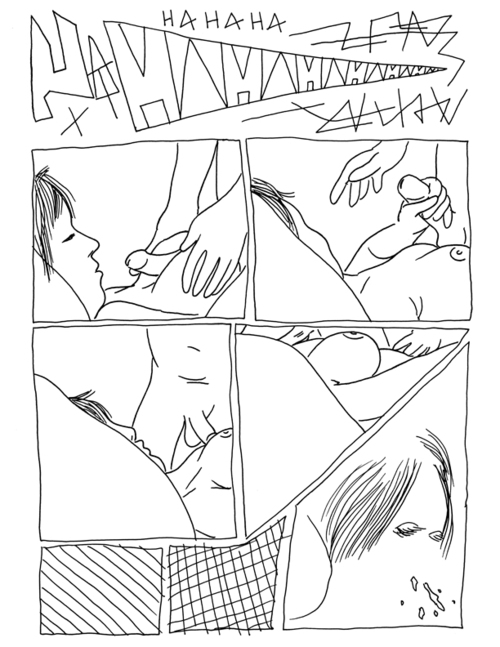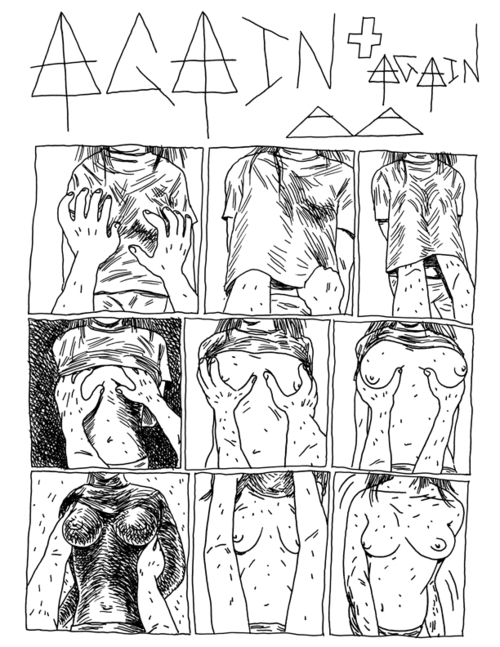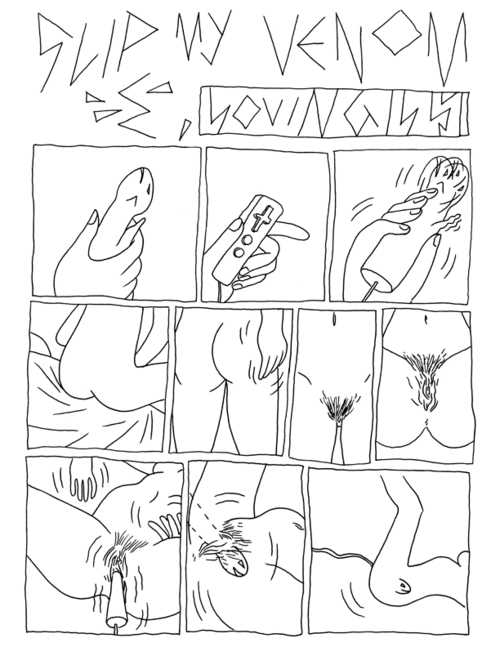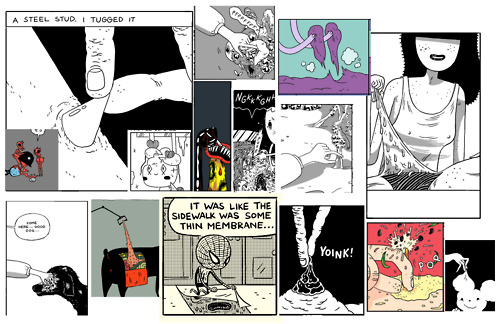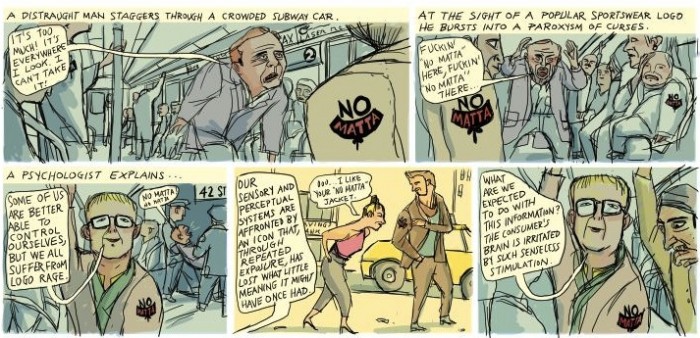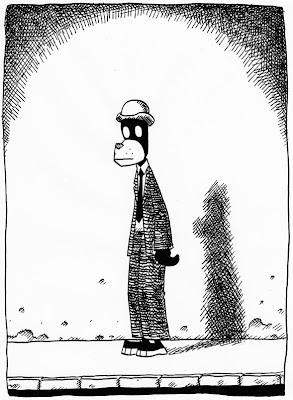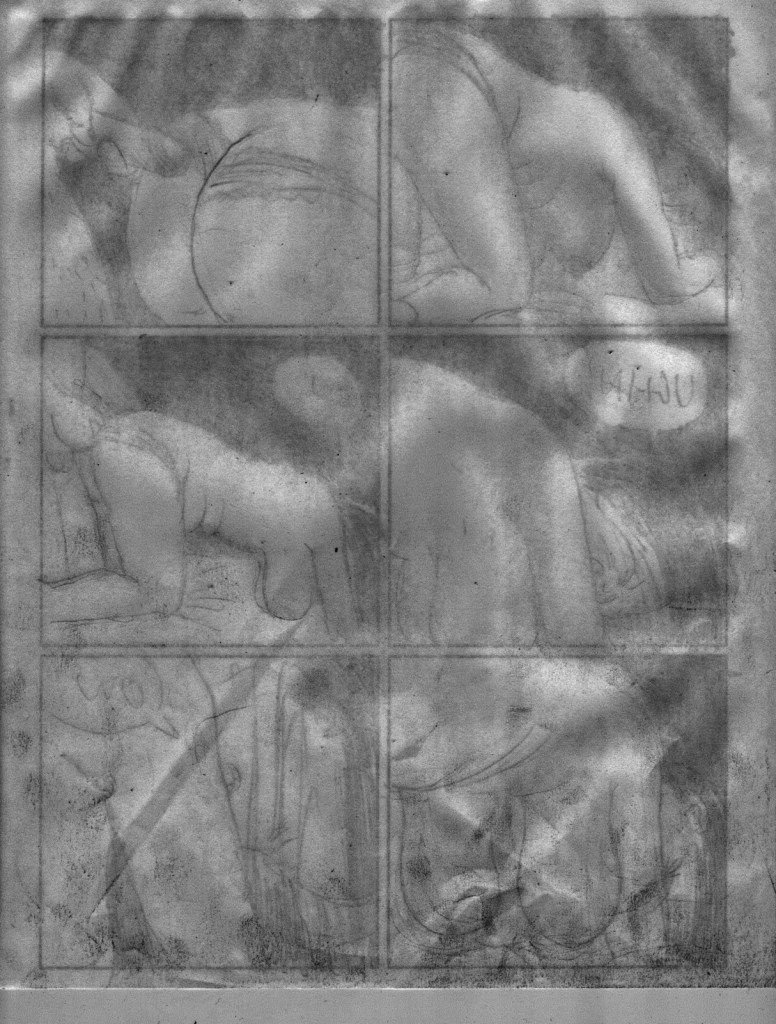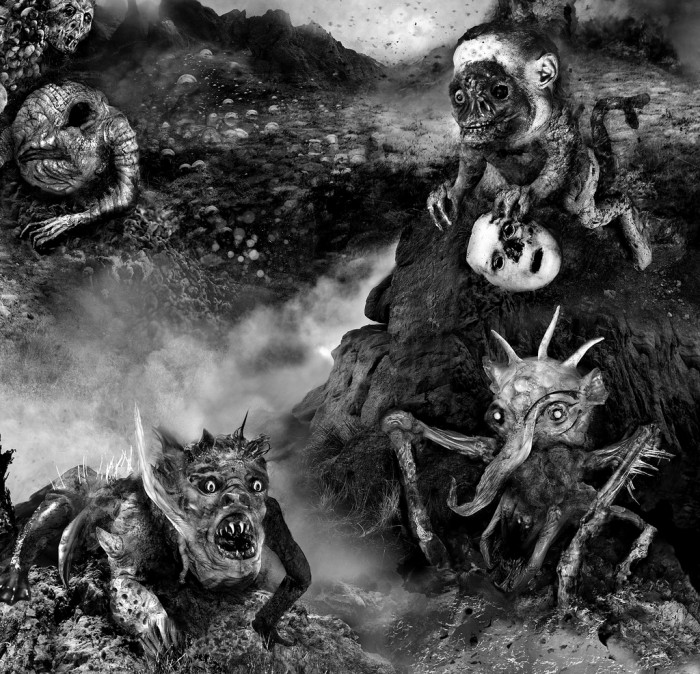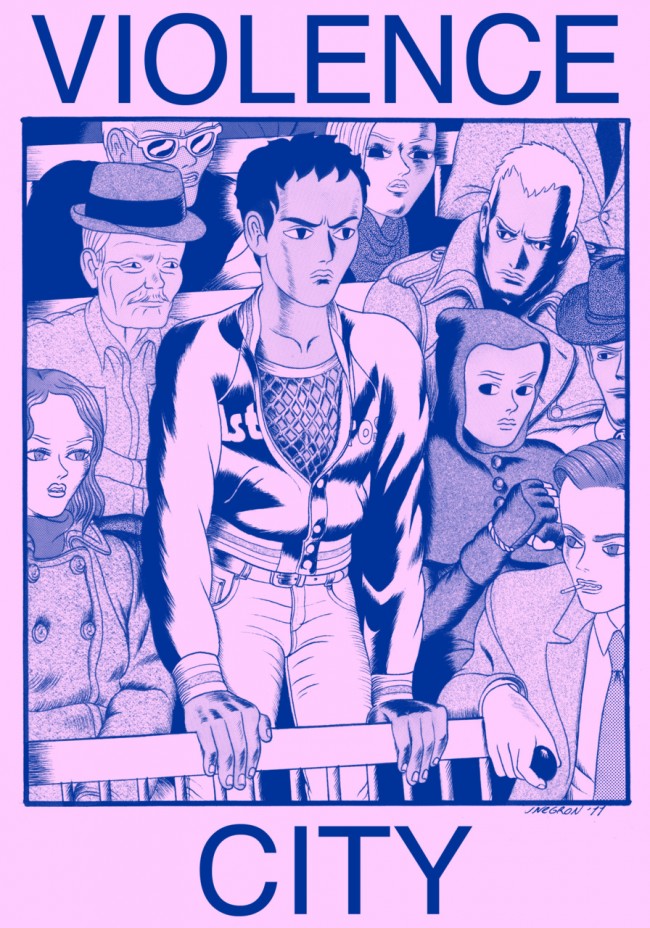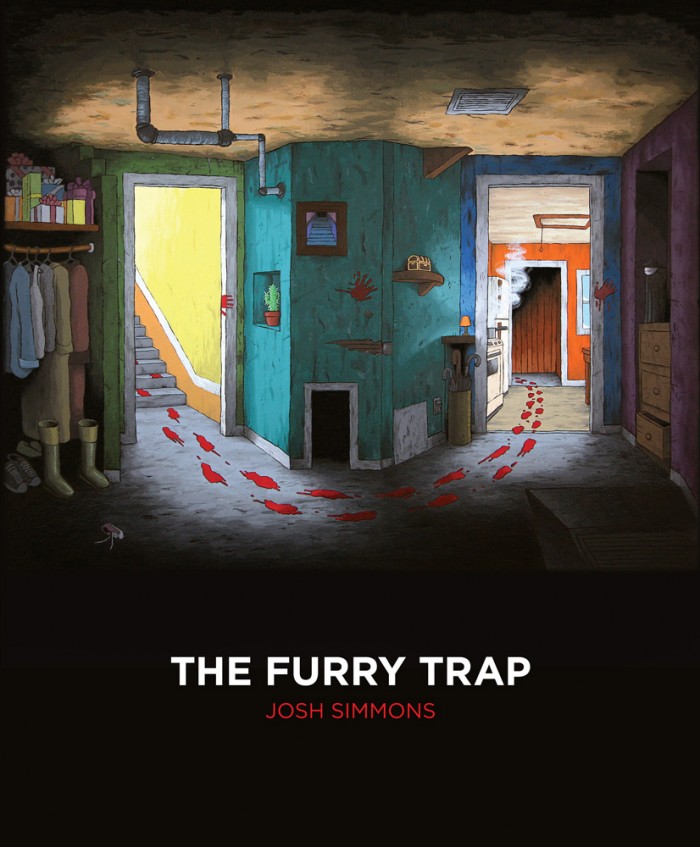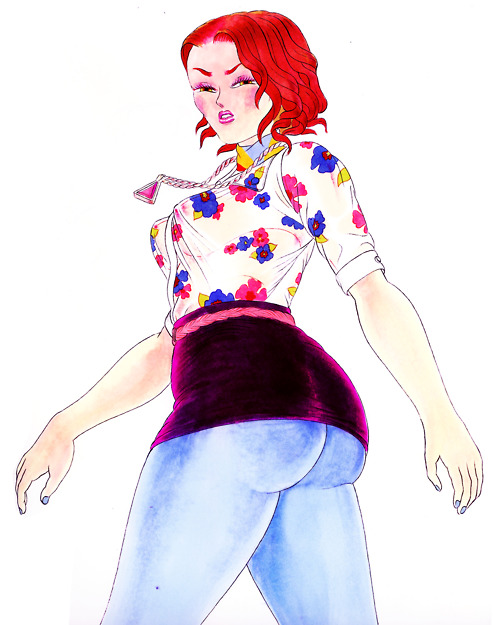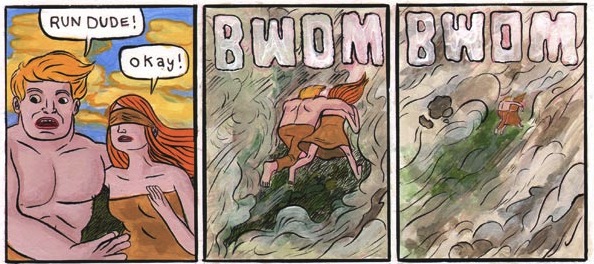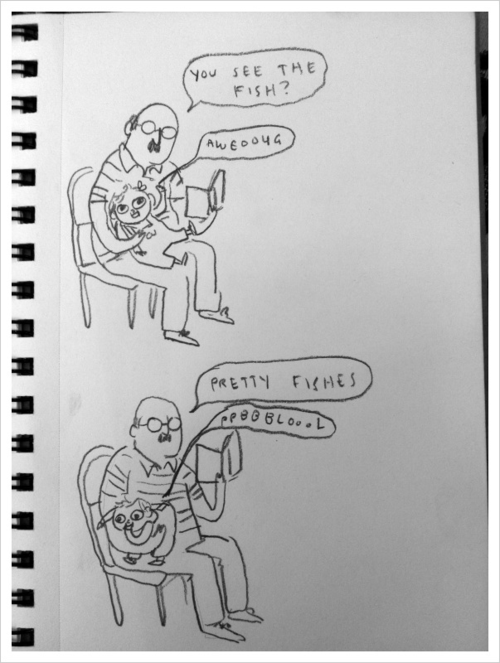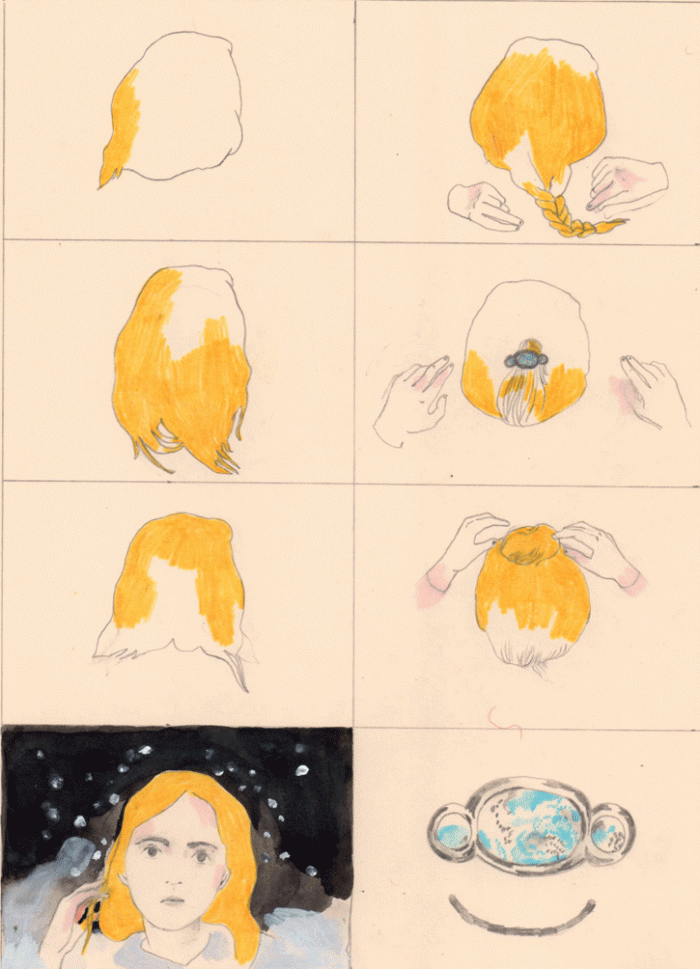SPOILER ALERT
* Mad Men Addresses Civil Rights (capitalized for the critics who wanted it to be addressed in capital letters like that, as if race’s liminal presence on the show wasn’t Matthew Weiner and company doing exactly that already) in the most Mad Men way possible: a bunch of happy asshole ad execs dropping water bombs on a picket line. This sets off a chain of events culminating in Sterling Cooper Draper Pryce integrating because of a prank that people who aren’t Sterling Cooper Draper Pryce actually took seriously. The arc of the universe is long, but it bends toward Joan Harris.
* My first big laugh of the night — and there were many, many more; this show’s hilarious, and after a few weeks of immersion in Game of Thrones I really appreciate that — came when Roger explained schadenfreude to Pete while they discussed Young & Rubicam’s PR black eye: “They stole the Ponds account, and now they’re a laughing stock. Makes me feel better!” It’s telling that Roger derives such satisfaction from something with which he had nothing to do, given that he doesn’t seem to have much to do with anything anymore.
* Pete looks like hell — disheveled collar, ugly tie, puffy face. I feel like his receding hairline became much more noticeable about halfway through the episode — when someone cracked a joke about him going bald at Don’s surprise party, I had no idea what they were talking about, but at some point after that it was like “whoa!” Hausfrau is a good look for Trudy, I think, despite what Pete says to his train friend (surprise: Alison Brie looks good in almost anything!), but suburban fatherhood is wearing very poorly on Pete himself, in physical terms alone.
* Civil rights was not the only c-word to crop up in a newly noticeable way: I’m pretty sure that the ill-fated Heinz baked beans meeting was the first time a client has requested that SCDP make an ad “cool.” Actually it may be the first time anyone’s used that word on the show at all. That’s a sea change in itself.
* Sally Draper wanders around Don’s weird new apartment like it’s the hotel in The Shining, then goes home to a house that looks like the Bates Motel from Psycho. I wonder if Sally will continue to be one of the show’s main vectors for the Weird — from fearing that her baby brother is the reincarnated ghost of her dead grandfather to the masturbation storyline, she’s provided Mad Men with some of its by-TV-standards strangest material. A great way to use a great child actress. (Here’s where I admit to my moment of shock when she opened her mouth and Kathleen Turner’s voice came out.)
* Did Joan select the color of her apartment walls to complement her hair?
* Bert Cooper arguing Vietnam with Peggy’s beatnik boyfriend was a magnificently funny moment. Either one may as well have been speaking Klingon for all the other could understand him.
* The Roger/Jane exchange at Don’s party — “Why don’t you sing like that?”/”Why don’t you look like him?” — will get a lot of attention and deservedly so, but for my money the real killer laugh line was their brief conversation when Roger gets up early to go to Pete’s fake Staten Island rendez-vous with Coca Cola: “What time is it?” “Shut up.” Now there’s a couple that’s comfortable with their contempt.
* Watching Don’s party unfold, with its Austin Powers aesthetic and soundtrack, I realized I’m quite happy the Rat Pack shit’s dunzo. I like to think that contemporary audience members out to ape Mad Men‘s retro-cool style without considering, uh, pretty much anything else about the show, or indeed supplanting the show’s critique of its era with an implicit endorsement, will have a more difficult time of it now that the styles are a) more garish; b) more directly associated with a time of political movement toward the left.
* Lane Pryce and the gun moll! God I hope that was Paz de la Huerta on the other end of the phone. Also, kudos to commenter Collegeboy on Matt Zoller Seitz’s review for noting that the woman’s name was Delores, which perhaps accounted for Lane’s resulting Haze. I’d already thought Jared Harris was James Masoning the living shit out of that conversation, but I hadn’t made the direct Lolita connection.
* Speaking strictly as a longtime guide on Don’s Tour of the Great Brunettes of the ’60s, I take this episode as a thorough vindication of my early Megan support. And not just appearance-wise either, although jeez. Megan may be struggling with Don’s propensity to shut himself off behind a black curtain, and that may be a generational thing, even just by a few years: she lumps her nominal contemporary Peggy in with Don during their conversation about cynicism at the office the following Monday, after all. But in general, it seems like she can hang, don’t you think? She’s made his darkest secret into something they joke about in bed. She’s chosen to stand up to all the potential and actual opprobrium thrown her way by becoming both his wife and his colleague/employee on the agency’s creative end. Most strikingly, in this episode anyway, she’s integrated Don’s many many many hangups into their sex life with real lacerating heat. Her anger during the underwear/cleanup scene was real and everything that led up to it was real, but as her and Don’s language became more and more dom-sub, my jaw dropped: these were not words, and this was not a dynamic, arrived at by chance in this moment. This was sex born out of experience with the stuff that turns them both on, and dark stuff at that. In the past Don could only get that out of his more sordid assignations, including the prostitute he paid to hit him during sex this time last season. Now he’s sharing this with his wife, who also shares his home, his family, his office, his creative life. Neither Betty nor Faye nor any of Don’s affairs ever hit for the cycle like that. Megan’s a force to be reckoned with.
* Which is not to say that their argument wasn’t legit, or its fallout (again!) very funny. “Haveagoodday.” “‘Kay.” Been there, bro!
* Joan Harris, human gif.

